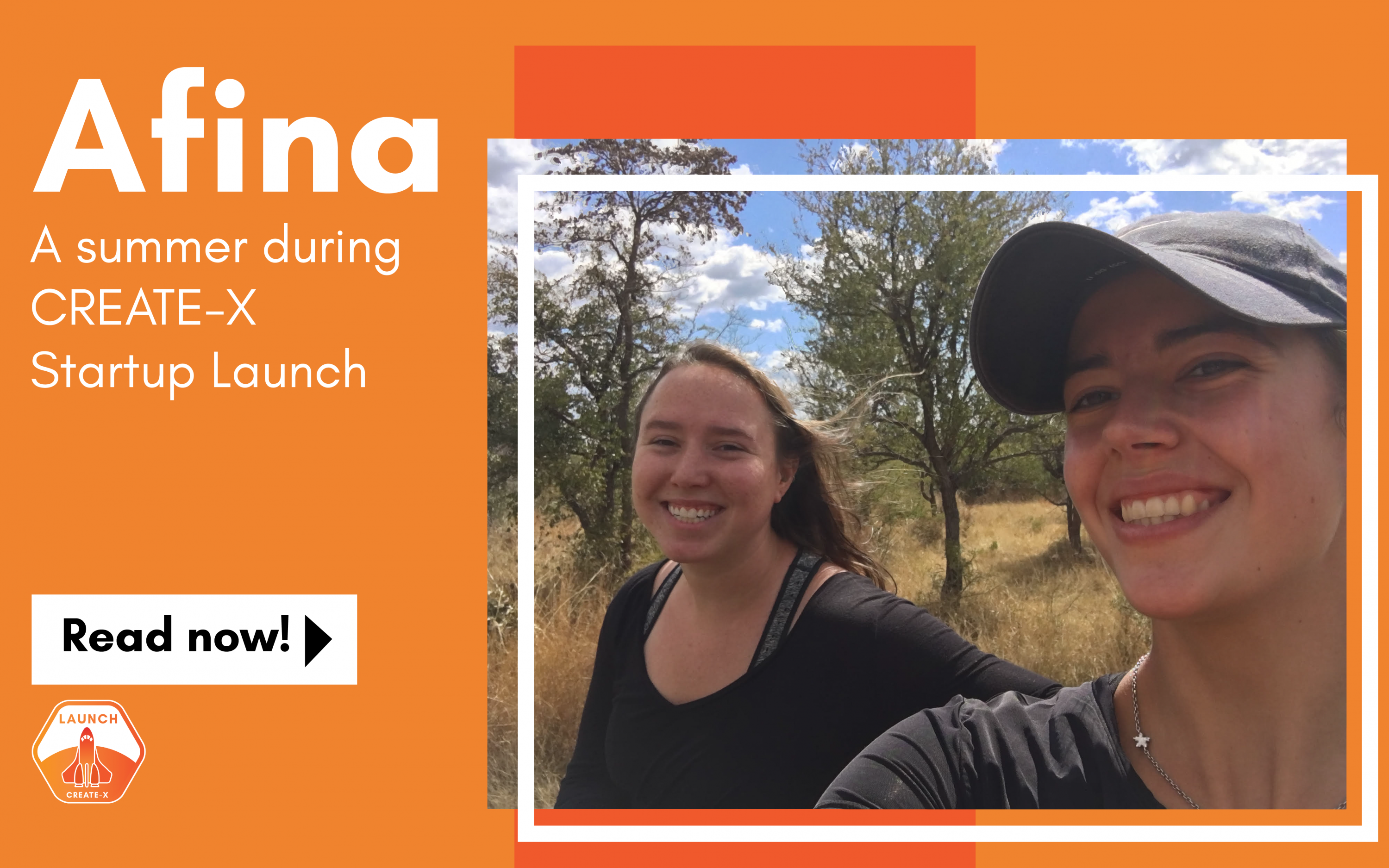
Mar 11, 2019 - Atlanta, GA
Leyla Larsson is a senior Biomedical Engineering major. She was accepted into Startup Launch 2018 with her roommate and co-founder Kristen Anderson.
Afina’s goal was to create a pair of underwear that would detect cervical pre-cancer. Larsson’s mother was diagnosed with breast cancer, and Larsson had recently completed a paper on the effect of cervical cancer in Maori women. Larsson found out that cervical cancer is the leading cause of death among the Maori women and wanted to do something about it.
“We hope to do our part in the ‘War on Cancer’ and in the fight towards gender equality by helping women who didn't have the resources for accessible healthcare get tested and treated for cervical cancer,” said Larsson.
Initially, they set out to identify how women in the U.S. understand and perceive cervical cancer and what they do to prevent it. After interviewing over 300 women in Atlanta, they learned that women in the U.S. don’t have a large concern for cervical cancer. Most of them felt indifferent since they had annual exams and health insurance that would help them if there were any warning signs.
Through the customer discovery process, the coaches taught Afina how to effectively gather information from the interviews. “Once we realized that we might need to pivot, [our coaches] really helped us by not only giving us connections, but also by teaching us how to form more connections, what questions to ask, and not to ask. From there, [we learned] how to analyze the data. It doesn’t matter how many people you interview if you don’t know what to take away from the responses.”
After some research, Afina decided to switch their focus to middle income countries with high mortality rates of cervical cancer due to poor detection and treatment. They settled on Zimbabwe. According to The Guardian, roughly 2,270 women in Zimbabwe are diagnosed with cervical cancer every year. Three-quarters of women seek treatment for cervical cancer too late, and the mortality rate has been recorded at 64%.
In order to truly understand the cause of these high mortality rates, Afina took a trip to Zimbabwe during the summer. During their time in Zimbabwe, Larsson and Anderson worked 60-70 hours each week and interviewed 30 doctors. Through further exploration, they were able to understand the culture and reasoning behind the lack of healthcare availability. From there, they were able to build a foundation and understand their focus.
Going through Startup Launch was a well-rounded experience for Larsson. During the summer, Larsson honed several soft skills, such as effective communication, engaging presenting and listening skills. “I’m an engineer. I know how to do math. I know how to solve a very concrete problem. But it was very cool to learn more about market analysis. That is important to get a holistic view of what design actually is.”
Larsson and Anderson were placed in a group of startups that were all focused on the healthcare industry. Their coaches, Dr. Pamela Bhatti, James Raines, and Dr. James Stubbs, all Georgia Tech professors with startups of their own in the healthcare field were able to connect them to several other medical professors at Georgia Tech and Emory.
Right now Afina is working with Emory on pre-cancer detection in Zimbabwe, but they are currently taking a break from in-country customer discovery due to the political climate of the country. They are currently ideating different solutions. Afina overall has also shifted to consulting and helping different entities solve healthcare related problems.
Larsson’s pieces of advice: Know when to savor a win because everyone will fail several times when creating a startup. Bite the bullet and go for it even if you don’t have an idea that is completely worked out. Even if you don’t have a successful startup — you will have learned so much about startups, business and design engineering — that you can’t really lose.